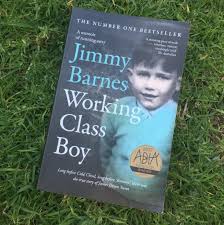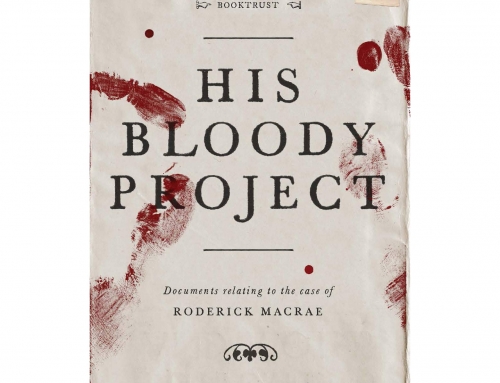As much as I have a soft spot for Cold Chisel songs even now, it never occurred to me to read Jimmy Barnes’ memoir until a recent trip to Melbourne. The airport bookshop now has a cafe and extracts of books to read while you wait for your flight. I read a snippet of what I thought was “Working Class Boy” not realising that the sequel “Working Class Man” has recently been released.
What struck me was how beautifully written it was. I really should not have been surprised – the gritty nature of Cold Chisel and Jimmy Barnes’ solo songs hide the simple beauty of the lyrics. It should have been obvious that Barnes has a way with words.

The harsh reality of Barnes’ early life in the outer Adelaide suburb of Elizabeth is a far cry from the romanticised ideal of working class life. His family history of domestic violence, alcohol abuse, neglect, social isolation and actual starvation is extraordinary in its tragedy. The conditions he and his five siblings endured were reminiscent of a much earlier era than 1960s Australia. As he says, wages were low enough that people without addiction could pay the bills and feed their family but there was not much left.
As a lifelong alcoholic, Jim Swan, Barnes’ father, could only afford his addiction by denying his children food, school shoes and clothes. The children fill their shoes with cardboard to keep out the rain. After their mother flees the violence of her marriage leaving the children behind, they steal money from their inebriated father’s pockets to buy potatoes they cannot carry home from the shop.
At one point Barnes sits on the pier at Glenelg beach thinking about the recently missing Beaumont children. He appears torn between pity and a sense of longing that the Beaumont parents are desperate to find their children while the Swan parents have no idea where he is and would not notice if he did not return from the same beach.
I cannot tell whether it is the beauty of the prose or the knowledge about Barnes’ ultimate escape from this world that saves the first part of the book from being too depressing to be readable. Either way, I could not put it down.
The true hero of the book is Barnes’ angelic step-father, Reginald “Reg” Barnes. He seems to care more for his step-children than his wife, their mother. Nonetheless he treats her with kindness and encourages the children not to be too hard on their parents who have “had a tough life” themselves. Perhaps it is Reg who was the inspiration for the idyll working class man – “a simple man with a heart of gold in a complicated land”.
This is the best book I have read in a long time. I will have to hunt down the sequel now.





